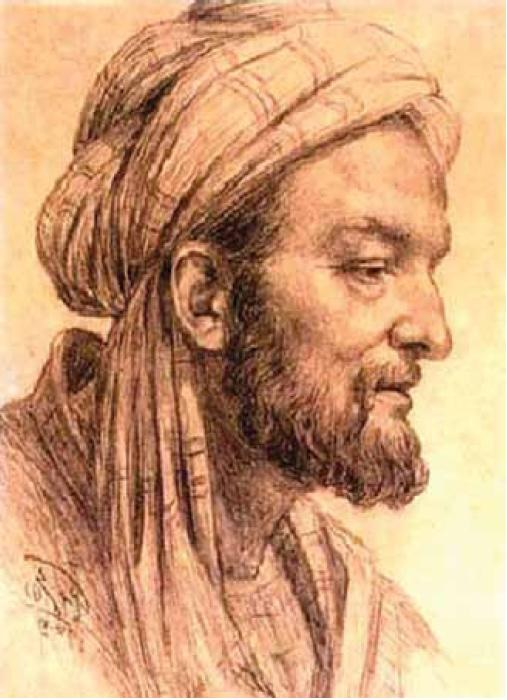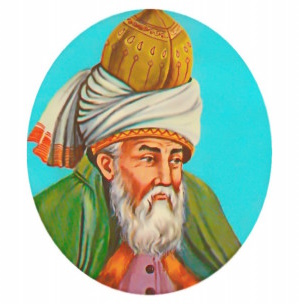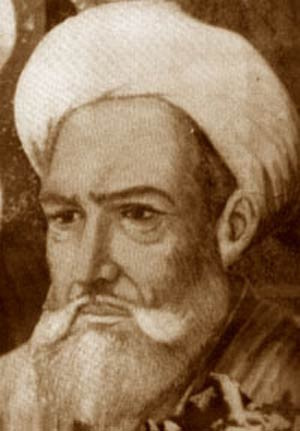Discover posts
Explore captivating content and diverse perspectives on our Discover page. Uncover fresh ideas and engage in meaningful conversations
"The Father of Algebra - Al-Khwarizmi
In the bustling city of Baghdad, where the House of Wisdom stood as a beacon of learning amidst the swirling currents of history, there lived a mathematician whose revolutionary ideas would forever transform the field of mathematics. His name was Al-Khwarizmi, and his legacy would transcend the boundaries of time and space.
Born into a world where the ancient traditions of Babylonian and Greek mathematics intersected with the vibrant culture of the Islamic world, Al-Khwarizmi's early years were marked by a fascination for the mysteries of numbers and equations. Raised amidst the gleaming domes and bustling markets of 9th-century Baghdad, he was exposed to a rich tapestry of ideas from a young age, drawn from the wisdom of ancient scholars and the innovations of his contemporaries.
From the opulent libraries of Baghdad's palaces to the bustling marketplaces of Samarkand and Cordoba, Al-Khwarizmi journeyed far and wide in search of mathematical enlightenment, guided by the belief that the pursuit of knowledge was the noblest of endeavors. Along the way, he studied under some of the greatest mathematicians and astronomers of his time, immersing himself in the intricacies of arithmetic, algebra, and astronomy.
It was here, amidst the vibrant tapestry of Islamic civilization, that Al-Khwarizmi's intellect blossomed like a desert rose, unfolding layer by layer to reveal the dazzling beauty of his mathematical insights. Drawing upon the wisdom of ancient mathematicians like Euclid and Diophantus, he sought to synthesize the diverse strands of mathematical thought into a coherent and systematic framework.
Yet, Al-Khwarizmi's quest for mathematical enlightenment was not without its challenges. Living in a world where political strife and sectarian divisions often threatened to obscure the path to knowledge, he faced fierce opposition from conservative scholars who viewed his innovative ideas with suspicion and mistrust.
Undeterred by their condemnation, Al-Khwarizmi continued to pursue his studies, guided by the belief that mathematics was the language of the universe, revealing the hidden patterns and structures that underlie the fabric of reality. In his magnum opus, the ""Kitab al-Jabr wa al-Muqabala"" (The Book of Restoration and Balancing), he laid out the principles of algebra, offering insights into the solution of linear and quadratic equations that would revolutionize the field of mathematics.
As the years went by, Al-Khwarizmi's fame spread far and wide, drawing scholars and students from all corners of the Islamic world to study his works. His treatises on arithmetic and algebra became indispensable tools for mathematicians and scientists, serving as the foundation for further advances in the field.
Yet, for all his brilliance, Al-Khwarizmi remained humble, ever mindful of the divine source of his inspiration. His legacy, however, would endure long after his passing, a testament to the enduring power of human intellect and the pursuit of knowledge.
Influence and Legacy:
Al-Khwarizmi's works would go on to influence generations of mathematicians and scientists, shaping the course of mathematics and science for centuries to come. His development of algebra laid the groundwork for further advances in mathematics, while his contributions to astronomy and geography helped to advance our understanding of the natural world.
Yet, despite his monumental contributions, Al-Khwarizmi's name would often be overshadowed by those of later luminaries. It was not until the modern era that Western scholars would come to fully appreciate the depth and breadth of his mathematical insights, whose principles of algebra continue to inspire mathematicians and scientists around the world.
Today, as we ponder the mysteries of the cosmos and the language of mathematics, let us remember Al-Khwarizmi, whose legacy endures as a testament to the enduring power of human intellect and the pursuit of knowledge.
Notable Works:
1. ""Kitab al-Jabr wa al-Muqabala"" (The Book of Restoration and Balancing) - A seminal work on algebra, laying out the principles of solving linear and quadratic equations.
2. ""Kitab al-Hisab al-Hindi"" (The Book of Indian Arithmetic) - A treatise on arithmetic, introducing the decimal system and the use of Indian numerals to the Islamic world.
3. ""Kitab Surat al-Ard"" (The Book of the Shape of the Earth) - A work on geography and cartography, offering insights into the shape and size of the Earth.
Related Scholars:
Al-Khwarizmi's legacy resonated with later mathematicians and scientists, including Omar Khayyam, Ibn al-Haytham, and Leonardo Fibonacci, who built upon his insights and expanded the horizons of human knowledge.
"

"The Bridge Between East and West - Ibn Rushd (Averroes)
In the vibrant city of Cordoba, where the echoes of Andalusian music mingled with the fragrance of orange blossoms, there lived a philosopher whose ideas would bridge the gap between East and West, shaping the course of human thought for centuries to come. His name was Ibn Rushd, known in the West as Averroes, and his legacy would transcend the boundaries of time and space.
Born into a world where the intellectual traditions of Islam intersected with the cultural heritage of al-Andalus, Ibn Rushd's early years were marked by a thirst for knowledge that knew no bounds. Raised amidst the gleaming mosques and bustling markets of 12th-century Cordoba, he was exposed to a rich tapestry of ideas from a young age, drawn from the wisdom of Greek philosophy, Islamic theology, and the scientific achievements of the ancient world.
From the opulent libraries of Cordoba's palaces to the bustling marketplaces of Seville and Toledo, Ibn Rushd journeyed far and wide in search of intellectual enlightenment, guided by the belief that the pursuit of truth was the highest calling of the human soul. Along the way, he studied under some of the greatest scholars and philosophers of his time, immersing himself in the intricacies of metaphysics, ethics, and political theory.
It was here, amidst the cultural melting pot of al-Andalus, that Ibn Rushd's intellect blossomed like a desert garden, unfolding layer by layer to reveal the dazzling breadth of his philosophical insights. Drawing upon the teachings of Aristotle and Plato, he sought to synthesize the diverse strands of philosophical thought into a coherent and systematic framework that could reconcile reason with revelation.
Yet, Ibn Rushd's quest for intellectual enlightenment was not without its challenges. Living in a world where religious orthodoxy often clashed with philosophical inquiry, he faced fierce opposition from conservative theologians who viewed his rationalist approach with suspicion and mistrust.
Undeterred by their condemnation, Ibn Rushd continued to pursue his studies, guided by the belief that reason and revelation were complementary paths to truth. In his magnum opus, the ""Tahafut al-Tahafut"" (The Incoherence of the Incoherence), he defended the compatibility of philosophy and religion, offering insights into the relationship between faith and reason that continue to resonate with thinkers to this day.
As the years went by, Ibn Rushd's fame spread far and wide, drawing scholars and students from all corners of the Islamic world to study his works. His commentaries on Aristotle became indispensable tools for those who sought to understand the complexities of Greek philosophy, while his philosophical treatises on ethics and politics offered insights into the nature of the human soul and the ideal society.
Yet, for all his brilliance, Ibn Rushd remained humble, ever mindful of the limitations of human understanding. His legacy, however, would endure long after his passing, a bridge between East and West, a testament to the enduring power of human reason and philosophical inquiry.
Influence and Legacy:
Ibn Rushd's works would go on to influence generations of scholars and thinkers, shaping the course of philosophy, theology, and science in both the Islamic world and medieval Europe. His commentaries on Aristotle played a crucial role in the transmission of Greek thought to the Latin West, where they would inspire later luminaries such as Thomas Aquinas and Albertus Magnus.
Yet, despite his monumental contributions, Ibn Rushd's name would often be overshadowed by those of later luminaries. It was not until the Renaissance that Western scholars would come to fully appreciate the depth and breadth of his philosophical insights, whose rationalist approach continues to inspire scholars and thinkers around the world.
Today, as we ponder the mysteries of existence and the nature of human knowledge, let us remember Ibn Rushd, whose legacy endures as a beacon of light amidst the darkness of ignorance, a bridge between East and West, a testament to the enduring power of human reason and philosophical inquiry.
Notable Works:
1. ""Tahafut al-Tahafut"" (The Incoherence of the Incoherence) - A defense of philosophy against attacks from orthodox theologians, offering insights into the compatibility of reason and revelation.
2. Commentaries on Aristotle - A series of commentaries on Aristotle's works, including ""The Physics,"" ""The Metaphysics,"" and ""The Nicomachean Ethics,"" which became indispensable tools for scholars in both the Islamic world and medieval Europe.
3. ""Bidayat al-Mujtahid"" (The Distinguished Jurist's Primer) - A legal treatise on Islamic jurisprudence, offering insights into the principles of Islamic law and legal reasoning.
Related Scholars:
Ibn Rushd's legacy resonated with later philosophers and scholars, including Ibn Sina, al-Farabi, and Maimonides, who built upon his insights and expanded the horizons of human knowledge.
"

"The Mystic Poet - Rumi
In the ancient city of Balkh, where the winds whispered secrets of love and longing, there lived a poet whose verses would transcend the boundaries of time and space, capturing the hearts of generations to come. His name was Rumi, and his legacy would forever enrich the tapestry of human experience.
Born into a world where the mystical traditions of Sufism intertwined with the vibrant culture of Persia, Rumi's early years were marked by a deep longing for spiritual truth. Raised amidst the swirling sands and towering minarets of 13th-century Balkh, he was exposed to a rich tapestry of ideas from a young age, drawn from the wisdom of the Quran, the Hadith, and the poetic traditions of Persian literature.
From the sun-baked courtyards of Balkh's madrasas to the bustling bazaars of Konya and Damascus, Rumi journeyed far and wide in search of spiritual enlightenment, guided by the belief that the quest for God was the highest calling of the human soul. Along the way, he studied under some of the greatest Sufi masters and poets of his time, immersing himself in the mysteries of divine love and mystical ecstasy.
It was here, amidst the swirling dervishes and haunting melodies of Sufi qawwalis, that Rumi's soul soared like a falcon, soaring to the heights of divine union and communion. Drawing upon the teachings of his beloved spiritual guide, Shams-e Tabrizi, he sought to express the ineffable experience of divine love through the language of poetry, weaving together strands of longing, ecstasy, and surrender into a tapestry of words that would resonate with seekers of truth for centuries to come.
Yet, Rumi's quest for spiritual truth was not without its challenges. Living in a world where orthodoxy and tradition often clashed with the ecstatic fervor of mystical experience, he faced fierce opposition from conservative theologians who viewed his poetry with suspicion and mistrust.
Undeterred by their condemnation, Rumi continued to pour forth his verses, guided by the belief that the language of the heart was the truest expression of divine revelation. In his magnum opus, the ""Masnavi-i Ma'navi"" (The Spiritual Couplets), he laid out his vision of mystical love and divine union, offering insights into the nature of the soul and its journey towards God.
As the years went by, Rumi's fame spread far and wide, drawing poets and mystics from all corners of the Islamic world to study his works. His poetry became known as the ""Divan-e Shams-e Tabrizi,"" a testament to the transformative power of divine love and the enduring legacy of Rumi's spiritual quest.
Yet, for all his brilliance, Rumi remained humble, ever mindful of the divine source of his inspiration. His legacy, however, would endure long after his passing, a beacon of light amidst the darkness of ignorance, a testament to the enduring power of love and spiritual longing.
Influence and Legacy:
Rumi's poetry would go on to influence generations of poets and mystics, shaping the course of Persian literature and Sufi spirituality for centuries to come. His verses continue to be recited and cherished by millions around the world, offering solace to the weary soul and guidance on the path to divine love and union.
Yet, despite his monumental contributions, Rumi's name would often be overshadowed by those of later luminaries. It was not until the modern era that Western scholars would come to recognize the depth and beauty of his poetry, whose verses continue to inspire seekers of truth and lovers of beauty around the world.
Today, as we ponder the mysteries of divine love and the yearning of the human heart, let us remember Rumi, whose legacy endures as a testament to the enduring power of love and spiritual longing.
Notable Works:
1. ""Masnavi-i Ma'navi"" (The Spiritual Couplets) - A poetic masterpiece exploring the nature of divine love and the soul's journey towards God, written in rhyming couplets.
2. ""Divan-e Shams-e Tabrizi"" (The Collected Poems of Shams of Tabriz) - A collection of poems expressing Rumi's spiritual longing and mystical experiences, inspired by his beloved spiritual guide, Shams-e Tabrizi.
3. ""Fihi Ma Fihi"" (In It What Is in It) - A collection of Rumi's discourses and teachings on spirituality, offering insights into the nature of divine love and the path to spiritual enlightenment.
Related Scholars:
Rumi's legacy resonated with later poets and mystics, including Hafez, Saadi, and Attar, who built upon his insights and expanded the horizons of Persian literature and Sufi spirituality.
"

"The Master of Islamic Jurisprudence - Imam Shafi'i
In the bustling city of Mecca, where the Kaaba stood as a symbol of unity and devotion, there lived a scholar whose contributions to Islamic jurisprudence would forever shape the practice of Islamic law. His name was Imam Shafi'i, and his legacy would transcend the boundaries of time and space.
Born into a world where the teachings of Islam permeated every aspect of daily life, Imam Shafi'i's early years were steeped in the rich tapestry of Islamic tradition. Raised amidst the throngs of pilgrims and scholars who flocked to Mecca from all corners of the Islamic world, he was exposed to a diverse array of legal opinions and scholarly debates from a young age, instilling in him a deep reverence for the principles of Islamic law.
From the crowded streets of Mecca to the bustling markets of Medina and Baghdad, Imam Shafi'i journeyed far and wide in search of legal knowledge, guided by the belief that the application of Islamic law was the cornerstone of a just and equitable society. Along the way, he studied under some of the greatest jurists and scholars of his time, immersing himself in the intricacies of Islamic jurisprudence and legal theory.
It was here, amidst the sacred precincts of Mecca and Medina, that Imam Shafi'i's intellect blossomed like a desert oasis, unfolding layer by layer to reveal the dazzling breadth of his legal insights. Drawing upon the principles of Quranic interpretation, Hadith analysis, and legal reasoning, he sought to synthesize the diverse strands of Islamic legal tradition into a coherent and systematic framework.
Yet, Imam Shafi'i's quest for legal knowledge was not without its challenges. Living in a world where sectarian divisions and political strife often threatened to undermine the unity of the Muslim community, he faced fierce opposition from rival schools of thought who viewed his legal methodology with suspicion and mistrust.
Undeterred by their condemnation, Imam Shafi'i continued to pursue his studies, guided by the belief that the principles of Islamic law were immutable and universal. In his magnum opus, the ""Kitab al-Umm"" (The Book of the Mother), he laid out his legal methodology, offering insights into the principles of Islamic jurisprudence that continue to guide jurists and scholars to this day.
As the years went by, Imam Shafi'i's fame spread far and wide, drawing students and scholars from all corners of the Islamic world to study under his tutelage. His legal methodology became known as one of the four major schools of Sunni Islamic law, serving as a primary source of guidance for Muslims around the world.
Yet, for all his brilliance, Imam Shafi'i remained humble, ever mindful of the divine source of his knowledge. His legacy, however, would endure long after his passing, a beacon of light amidst the darkness of ignorance, a testament to the enduring power of Islamic jurisprudence.
Influence and Legacy:
Imam Shafi'i's legal methodology would go on to influence generations of jurists and scholars, shaping the course of Islamic law for centuries to come. His emphasis on the Quran and the Hadith as primary sources of Islamic law, as well as his principles of legal reasoning, continue to inform the practice of Islamic jurisprudence to this day.
Yet, despite his monumental contributions, Imam Shafi'i's name would often be overshadowed by those of later luminaries. It was not until the modern era that Western scholars would come to recognize the depth and rigor of his legal methodology, whose principles of Islamic jurisprudence continue to inspire scholars and students around the world.
Today, as we ponder the principles of Islamic law and the legacy of Imam Shafi'i, let us remember his enduring contributions to the practice of Islamic jurisprudence and the pursuit of justice in the Muslim world.
Notable Works:
1. ""Kitab al-Umm"" (The Book of the Mother) - A comprehensive treatise on Islamic jurisprudence, laying out the legal methodology of Imam Shafi'i and offering insights into the principles of Islamic law.
2. ""Al-Risala"" (The Epistle) - A concise manual of Islamic law, outlining the basic principles of Islamic jurisprudence and legal reasoning.
3. ""Kitab al-Hujjah"" (The Book of the Proof) - A collection of legal opinions and rulings issued by Imam Shafi'i, providing guidance on various issues of Islamic law and practice.
Related Scholars:
Imam Shafi'i's legacy resonated with later jurists and scholars, including Imam Malik, Imam Ahmad ibn Hanbal, and Imam Abu Hanifa, who built upon his legal methodology and expanded the horizons of Islamic jurisprudence.
"

"The Philosopher of Illumination - Shahab al-Din Suhrawardi
In the mystical city of Aleppo, where the ancient citadel stood as a sentinel against the shifting sands of time, there lived a philosopher whose insights into the nature of reality and consciousness would forever transform the landscape of Islamic philosophy. His name was Shahab al-Din Suhrawardi, and his legacy would transcend the boundaries of time and space.
Born into a world where the mystical traditions of Sufism intersected with the philosophical inquiries of Greek thought, Suhrawardi's early years were marked by a deep longing for spiritual enlightenment. Raised amidst the labyrinthine alleys and bustling markets of 12th-century Aleppo, he was exposed to a rich tapestry of ideas from a young age, drawn from the wisdom of the Quran, the Hadith, and the mystical teachings of Sufism.
From the dusty libraries of Aleppo's madrasas to the sacred precincts of Cairo's al-Azhar University, Suhrawardi journeyed far and wide in search of philosophical wisdom, guided by the belief that the quest for truth was the noblest of endeavors. Along the way, he studied under some of the greatest philosophers and mystics of his time, immersing himself in the intricacies of metaphysics, epistemology, and mysticism.
It was here, amidst the shimmering mosques and bustling souks of the Islamic world, that Suhrawardi's intellect blossomed like a desert rose, unfolding layer by layer to reveal the dazzling beauty of his philosophical insights. Drawing upon the wisdom of ancient Greek philosophers like Plato and Plotinus, he sought to synthesize the diverse strands of thought into a coherent and systematic framework.
Yet, Suhrawardi's quest for philosophical enlightenment was not without its challenges. Living in a world where sectarian divisions and political strife often threatened to obscure the path to truth, he faced fierce opposition from orthodox theologians who viewed his mystical teachings with suspicion and mistrust.
Undeterred by their condemnation, Suhrawardi continued to pursue his studies, guided by the belief that the quest for truth was the highest calling of the human soul. In his magnum opus, the ""Hikmat al-Ishraq"" (The Philosophy of Illumination), he laid out his philosophical system, offering insights into the nature of reality, consciousness, and the soul that continue to inspire seekers of truth to this day.
As the years went by, Suhrawardi's fame spread far and wide, drawing philosophers and mystics from all corners of the Islamic world to study his works. His philosophy of illumination became known as one of the most influential philosophical systems in Islamic thought, inspiring generations of thinkers to explore the depths of human consciousness and the mysteries of existence.
Yet, for all his brilliance, Suhrawardi remained humble, ever mindful of the divine source of his inspiration. His legacy, however, would endure long after his passing, a beacon of light amidst the darkness of ignorance, a testament to the enduring power of human intellect and spiritual insight.
Influence and Legacy:
Suhrawardi's philosophy of illumination would go on to influence generations of philosophers and mystics, shaping the course of Islamic thought for centuries to come. His insights into the nature of reality and consciousness continue to inspire scholars and seekers of truth around the world, offering a glimpse into the mysteries of existence and the human soul.
Yet, despite his monumental contributions, Suhrawardi's name would often be overshadowed by those of later luminaries. It was not until the modern era that Western scholars would come to recognize the depth and beauty of his philosophical insights, whose philosophy of illumination remains a cornerstone of Islamic philosophy and mysticism.
Today, as we ponder the mysteries of existence and the nature of consciousness, let us remember Suhrawardi, whose legacy endures as a testament to the enduring power of human intellect and spiritual insight.
Notable Works:
1. ""Hikmat al-Ishraq"" (The Philosophy of Illumination) - A seminal work in Islamic philosophy, offering insights into the nature of reality, consciousness, and the soul.
2. ""Kitab al-Talwihat"" (The Book of Admonitions) - A collection of philosophical treatises on various topics including ethics, epistemology, and metaphysics.
3. ""Hayakal al-Nur"" (The Temples of Light) - A mystical allegory exploring the journey of the soul towards enlightenment, inspired by Suhrawardi's philosophy of illumination.
Related Scholars:
Suhrawardi's legacy resonated with later philosophers and mystics, including Ibn Arabi, Mulla Sadra, and Ibn Sina, who built upon his insights and expanded the horizons of Islamic philosophy and mysticism.
"





















futureyqwjcq
Delete Comment
Are you sure that you want to delete this comment ?
Zahra Abdallah
Delete Comment
Are you sure that you want to delete this comment ?